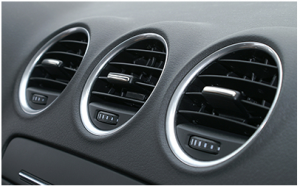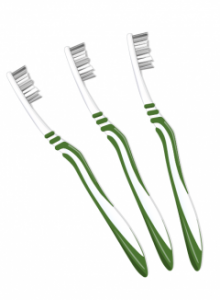Hexpol bringing advanced TPEs to Fakuma
Friedrichshafen, Germany – Hexpol TPE will present an expanded range of products developed to meet increasingly stringent industry standards and emerging demands in the consumer, medical, packaging and automotive interiors markets.
“Customers are looking for highly customisable materials, originating from trusted raw materials which are compounded under well-controlled conditions, thereby making it easier for their products to address industry standards,” said Peter Ryzko, managing director at Hexpol TPE’s German site.
Dryflex TPEs are said to display low fogging and low odour performance, including grades with results ? 3 in odour standards such as VDA 270. According to gravimetric fogging standard DIN 75201 they have condensate
A new development in the Mediprene family of TPEs for medical applications is the introduction of several grades for solvent bonding. “Many customers are today joining tubes with injection moulded components, such as connectors, by solvent bonding.
Traditional TPS based formulations do not bond well with solvent – cyanoacrylate glue with or without primer is an alternative to achieve high bond strength in these situations,” noted Niklas Ottosson, technical manager – medical, at Hexpol TPE.
Representative grades, he said, have passed cytotoxicity tests according to ISO 10993-5 and biocompatibility tests according to ISO 10993-10 (Intracutaneous Reactivity), ISO 10993-11 (Acute Systemic Toxicity) and USP Class VI.
Mediprene solvent bondable TPEs for injection moulding are available in hardness’ from 70 Shore A to 45 Shore D and can be further expanded based on application requirements.
With increasing demands from consumers for the polymer industry to deliver sustainable alternatives to traditional fossil based products, another growing area for Hexpol TPE is the Dryflex Green family of biobased TPEs from renewable resources.
These compounds, said Hexpol, are opening up new design solutions to the biobased thermoplastic market by covering a wider range of hardnesses while incorporating high levels of renewable content. Typical applications include household products, sports equipment, construction profiles and automotive mats. HEXPOL TPE has further extended the range to include even softer grades, with new compounds available from 15 Shore A through to 55 Shore D.
The Dryflex Green range includes grades with biobased content over 90% (ASTM D 6866), achieved by use of truly sustainable raw materials and feedstocks such as sugarcane, with recognised certifications such as ISCC+ and can derive from raw materials such as polymers, fillers, plasticisers or additives.
This article is only available to subscribers - subscribe today
Subscribe for unlimited access. A subscription to European Rubber Journal includes:
- Every issue of European Rubber Journal (6 issues) including Special Reports & Maps.
- Unlimited access to ERJ articles online
- Daily email newsletter – the latest news direct to your inbox
- Access to the ERJ online archive






